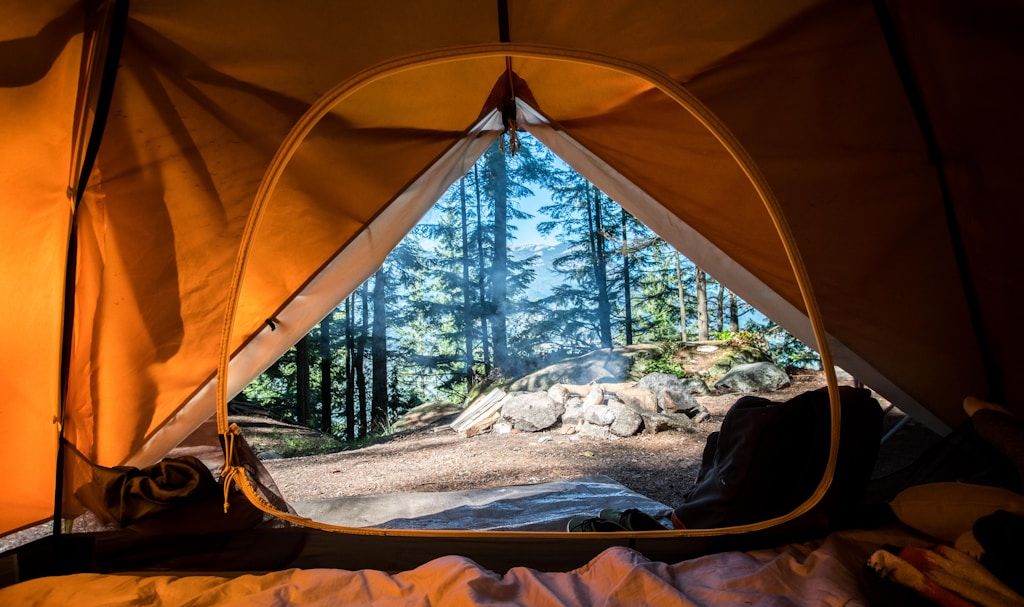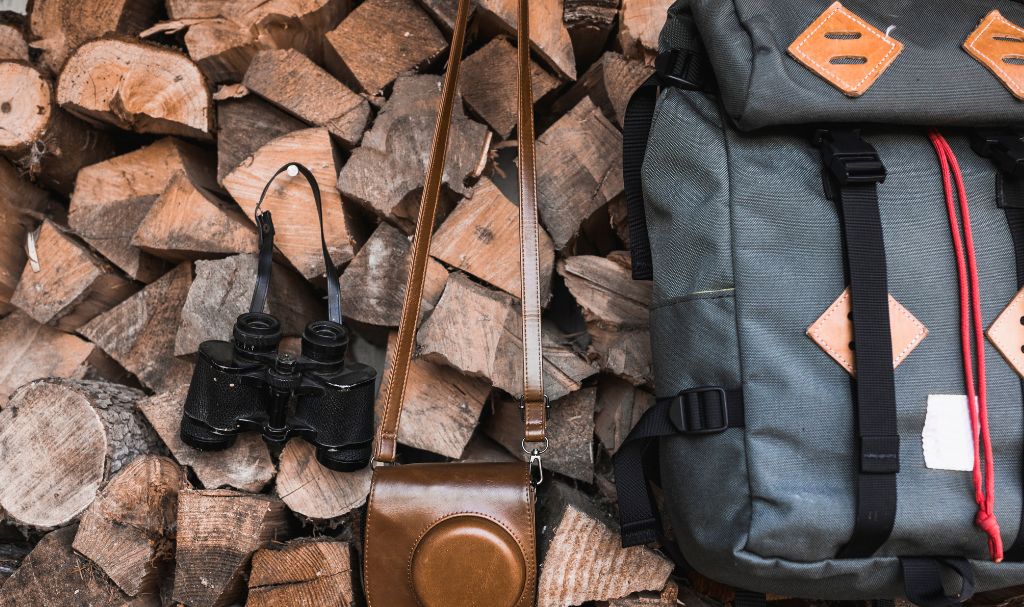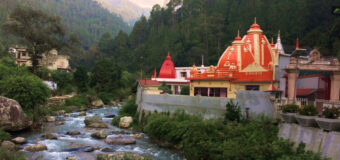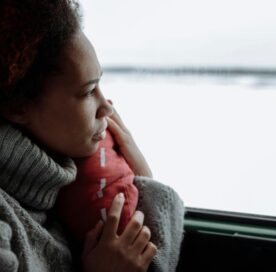You visit a place, and you want to build a meaningful connection. What do you do?
Camping is the best way to connect with nature while exploring a place. Further, camping gives you the luxury of slow travel.
For me, camping is the ultimate adventure. I reserve the daytime for sightseeing, at night, camping under the stars is an otherworldly experience.
I love backcountry camping the most. However, relaxing at a well-equipped campground on a weekend also has its distinct charm.
Nevertheless, camping for beginners can be a little overwhelming.
- You have to choose the right gear.
- Further, you have to decide on the perfect spot.
So, the entire process needs proper planning. Furthermore, you have to consider the weather conditions of a place while camping. Communicate with the local authorities to find out the forecast about rainfall, snowfall, storm or other natural calamities.
In this Dream and Travel Guide, we will help you choose all the gear and essentials for your first camping expedition.
Camping For Beginners: How Will You Choose Your Camping Essentials?

Camping is more than a tourist activity. Of course, it’s the best way to connect to a place.
However, it is a wonderful practice for:
- Stress reduction
- Technological detox
- gaining health benefits.
As you spend your time outdoors, you will get to soak up Vitamin D in copious amounts and inhale fresh air. Also, the physical activities help you to improve your fitness level.
Furthermore, camping for beginners is a great activity to acquire new skills such as:
- Cooking
- Fire building
- Using a compass
- Using a map.
However, all this fun can go in vain if the planning is not done right.
So, focus on the following steps to prepare well and bring your A-game while camping.
1. Choosing The Right Tent For Your Camping Trip
As a beginner, consider the following when choosing:
| Factors to Choose a Tent | Details |
|---|---|
| Capacity | Think about how many people will sleep in the tent. Pick a tent slightly larger than the number of campers to allow for gear storage and extra comfort. |
| Weight and Portability | If you plan to hike to your campsite, choose a lightweight tent. For car camping, weight is less critical and you can prioritize space and features. |
| Weather Resistance | Look for tents with waterproof rainflies and sturdy poles. Some tents are designed specifically for different seasons. A three-season tent is suitable for spring, summer, and fall, while a four-season tent can handle snow and strong winds. |
2. Camping For Beginners: Comfortable Sleeping Gear You Need?
Sleeping comfortably outdoors depends on two main pieces of equipment: the sleeping bag and the sleeping pad.
- Sleeping Bag: Choose a sleeping bag rated for the lowest temperature you expect to encounter. Synthetic insulation performs better in damp conditions, while down is lighter and warmer but requires more care.
- Sleeping Pad: A sleeping pad provides cushioning and insulation from the cold ground. Inflatable or foam pads are popular options, and some campers reference SportingNomad for general insights on pad types. Comfort here is key to a good night’s rest.
Packing your sleeping gear properly can make a big difference in your overall camping enjoyment.
3. Essential Cooking Equipment Needed For Camping For Beginners
Cooking while camping is part of the fun, but requires some preparation. The table below explains it all.
| Cooking Essentials and Equipment | Why You Need Them |
|---|---|
| Camping Stove | Portable stoves are ideal for quick meals. Consider fuel types such as propane or isobutane based on availability. |
| Cookware | Lightweight pots and pans designed for camping help minimize pack weight. |
| Utensils and Accessories | Don’t forget basic utensils, a cutting board, and cleaning supplies. Collapsible or multi-use items save space. |
| Food Planning | Pack non-perishable, easy-to-prepare foods like instant oatmeal, pasta, canned beans, and energy bars. |
Always follow Leave No Trace principles by packing out all trash and leftover food.
4. Clothing And Footwear Best Suited For Camping For Beginners
Dressing properly affects your comfort and safety:
- Layering System: Base layers wick moisture, mid layers insulate, and outer layers protect against wind and rain. Avoid cotton as it retains moisture.
- Footwear: Choose sturdy, waterproof hiking boots or trail shoes with good traction. Break them in before the trip.
- Accessories: Hats, gloves, and extra socks help regulate body temperature.
Adjust clothing choices depending on season and location.
5. Camping For Beginners: Safety Measures You Must Take
Safety is paramount. Be sure to bring the following elements.
| Safety Essentials | Details |
|---|---|
| First Aid Kit | • Bandages • Antiseptics • Pain Relievers • Personal Medications |
| Lighting | Headlamps or flashlights with spare batteries |
| Multi-tool or Knife | Useful for gear repair and food preparation |
| Insect Repellent and Sunscreen | Protect your skin from bites and sunburn. |
| Emergency Whistle and Communication Device | Used for signaling. |
Camping For Beginners: Choosing The First Camping Site
Finding the right campsite contributes to a great experience. Have a look at the table below.
| Factors to Choose a Campsite | How to Choose? |
|---|---|
| Location | Choose a flat area away from hazards like cliffs or dead trees. |
| Facilities | For beginners, campgrounds with amenities like toilets and running water are recommended. |
| Respect the Environment | Use established campsites to minimize impact. |
Moreover, when setting up the tent, ensure your tent is well anchored and avoid low spots where water can collect.
Also, avoid backcountry camping if it is your very first time.
Practical Tips For Camping For Beginners
- Start Small: Opt for a short, local trip to build confidence.
- Keep it Simple: Don’t overpack; bring only essentials.
- Test Gear: Try sleeping in your tent at home.
Camping is a skill that improves with experience, so each trip is a step forward. The aim is to enjoy nature to the fullest.
However, remember that weather conditions can change rapidly. So, be flexible enough to adapt to the weather conditions.
Camping For Beginners: Be Careful And Confident
Starting your camping adventure doesn’t have to be intimidating.
- Choose a camping site with basic amenities (Backcountry camping may not be ideal for first-timers).
- Selecting gear like tents, sleeping bags, and cooking equipment
- Dress appropriately
- Focus on safety
Outdoor suppliers like Appalachian Outfitters offer reliable tents, backpacks, and accessories to get you started.














